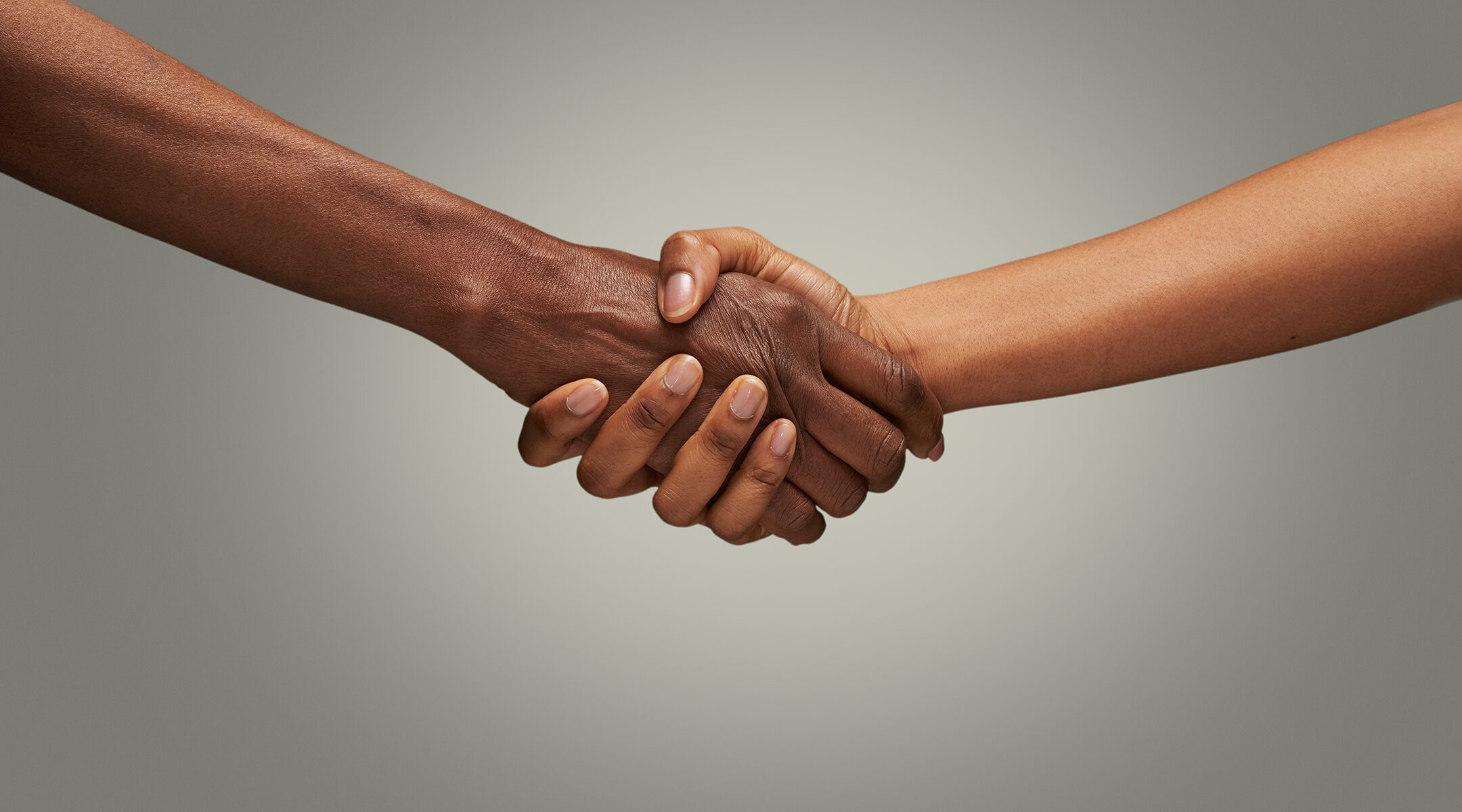Q: Hey Rabbi — I have a quick question. I met the Rabbi at the Chabad at our school. Anyways, I had a long conversation with him and when I went to leave I put out my hand to shake his hand and he politely declined. Does my hand have a disease? What’s going on here? Thanks and hope everything is well.
A: No, you don’t have a disease!
Very observant men might decline to have contact with women at “that time of the month,” because blood is a source of ritual impurity. While they know when their wives are menstruating (sometimes via subtle hints, like an upside down glass on the kitchen table… or the beds being yanked apart) with others they don’t, so they tend to refrain from all contact at all times. Some will even avoid eye contact.
It’s also considered a sign of modesty to avoid unnecessary contact with the opposite sex. It’s called “Shomer Negiah,” a restraining order for sexual urges. Negiah applies to women as well as men, by the way. But it usually refers more to kissing and hugging and other visible signs of affection, rather than mere touching and handshaking. In this article, you’ll find that shaking hands with a member of the opposite sex has become a matter of dispute among Jewish legal scholars. Another good article on the matter can be found here, and you can see here that the New York Times’ Ethicist was highly critical of a realtor who refused to shake a female client’s hand when closing a deal.
This behavior is offensive to many, but you shouldn’t take it personally. This practice may stem in part from anti-female sentiments that existed in ancient and medieval times in many cultures. But it goes beyond mere misogyny – and hygiene, for that matter. For the ancients, blood was a symbol of life and therefore the source of ultimate mystery and awe. The laws of purity are still practiced widely in traditional communities – and many think the added restrictions work wonders for their sex life – but now feminists are also finding spiritual meaning in the flowing waters of the Mikveh.
If you feel comfortable with this guy, you might want to hear his explanation. I’m sure he’s used to getting these questions from students. You can then suggest that he do something that an Orthodox rabbinic friend of mine did recently on an emotional trip to Poland with teenagers, many of whom needed constant support. When a girl looked sad, he would walk over and hand her a card saying “hug” on it. The girls appreciated it (although the boys got real hugs). No reason a card can’t say “handshake” as well. And for the occasional pickup game of hoops, how about a card that says “high five” (I don’t think a flying chest bump would work, though).
And then you can cite for him this guideline from the career development center of Yeshiva University:
Shaking hands is a customary part of the interview process. Halacha permits non-affectionate contact between men and women when necessary. A quick handshake can be assumed to be business protocol. Since failure to shake hands will most likely have a strong negative effect on the outcome, it is necessary non-affectionate contact, which is permissible.
Then, to conclude your business, a simple wave or thumbs up might be the best strategy.
| Signup for our weekly email newsletter here.
Check out the Jewish Week’s Facebook page and become a fan! And follow the Jewish Week on Twitter: start here. |
The New York Jewish Week brings you the stories behind the headlines, keeping you connected to Jewish life in New York. Help sustain the reporting you trust by donating today.





